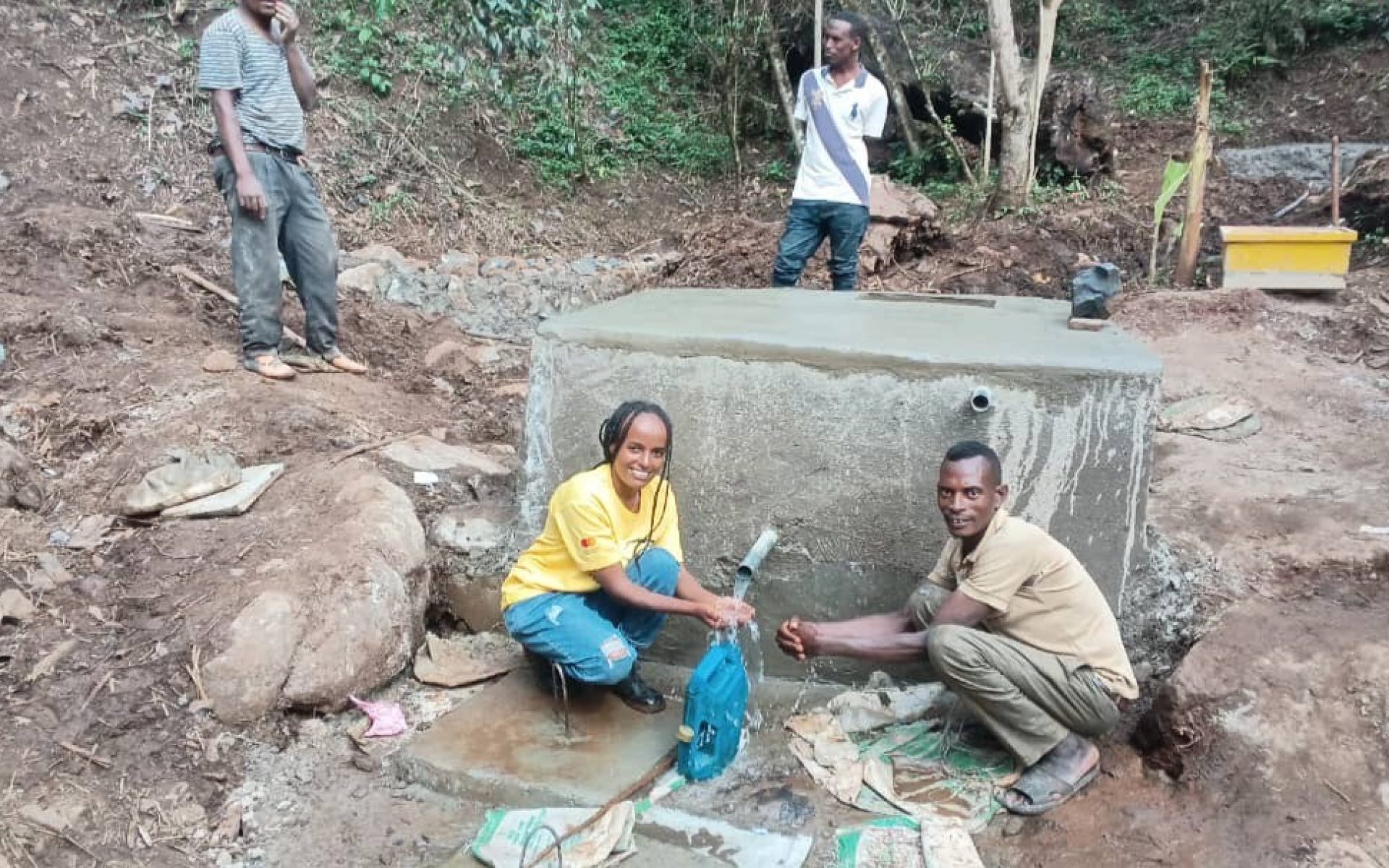In the rural village of Kenteri Kebele, Oromia Region, Ethiopia, clean water once felt like a luxury. Women and children trekked over an hour each day to fetch water from contaminated springs, ponds, and rivers, placing health, education, and safety at risk.
Betelhem, a CorpsAfrica/Ethiopia Volunteer from the 2024/25 cohort, recognized that this daily hardship was more than an inconvenience; it was a systemic barrier. Through a series of conversations, focus groups, and household visits, water access emerged as the community’s most urgent need.
She worked alongside local leaders, elders, and CorpsAfrica to design a spring protection system tailored to the geography and needs of Kenteri Kebele. The plan included identifying a viable spring, constructing a catchment area, installing a drainage system, and building a protective concrete wall.
But this project wasn’t simply implemented for the community; it was implemented with them. Residents offered labor, local materials, and invaluable traditional knowledge. Local government offices stepped in with technical guidance and engineers. Betelhem kept everyone connected, facilitating meetings, ensuring transparency, and building trust.
Completed between December 2024 and March 2025, the spring well now serves over 250 residents. Waterborne illnesses have declined, school attendance, especially among girls, has risen, and residents report better hygiene and more time for income-generating work.
Betelhem’s story is more than a successful water project. It’s a blueprint for sustainable development rooted in community leadership, shared responsibility, and long-term impact. She didn’t just help build a well; she helped build capacity and belief.

